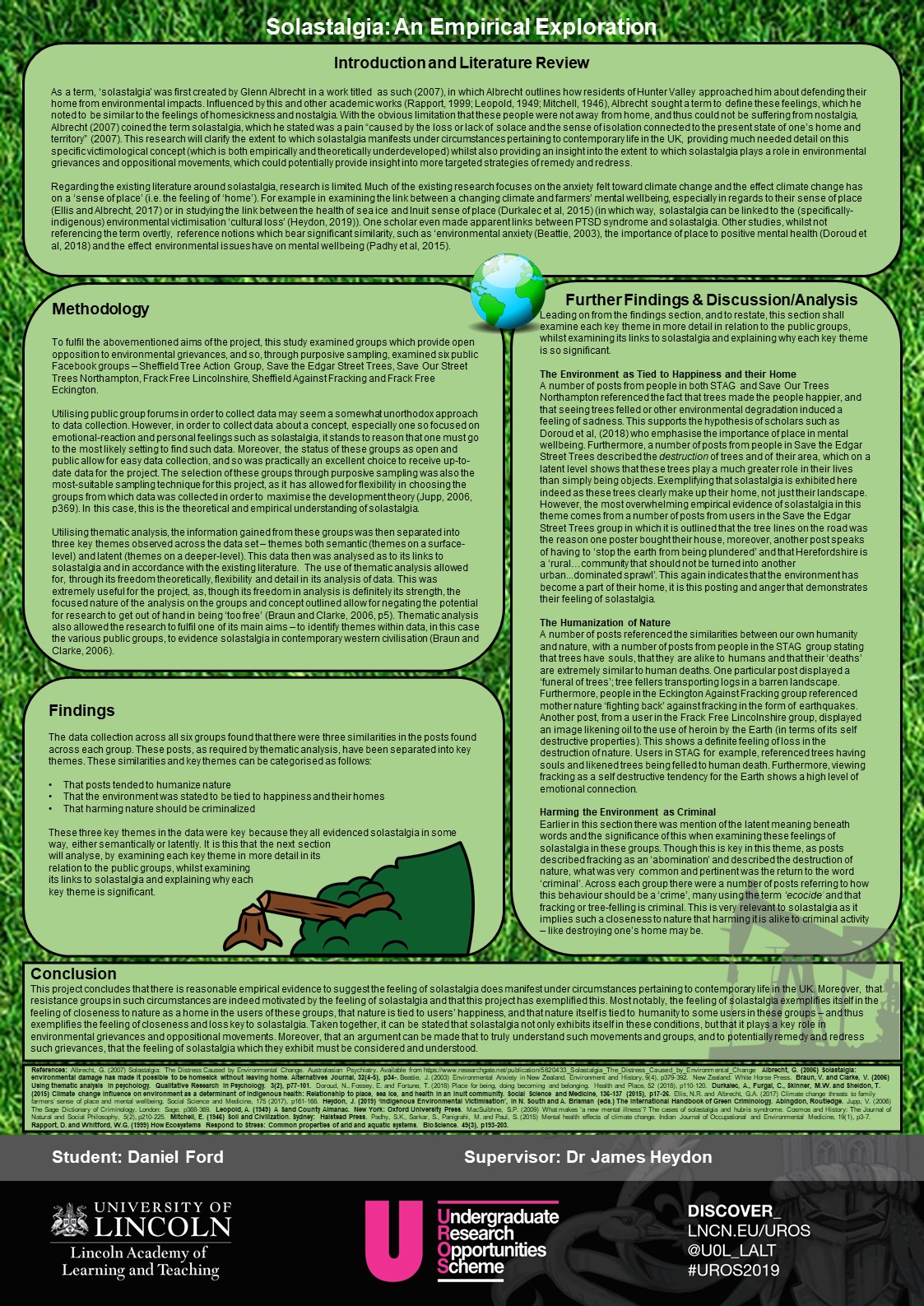by Daniel Ford //
 My project was a study on the topic of solastalgia – Glenn Albrecht’s term for the feeling of nostalgic loss toward the environment (2006). More specifically, the study was an empirical exploration of the subject. What my supervisor and I wanted to examine was the existence of the feeling of solastalgia in contemporary Britain, as research on the topic so far had only covered the existence of the feeling in societies unlike contemporary western societies, whose cultures are inherently more focused around their environment.
My project was a study on the topic of solastalgia – Glenn Albrecht’s term for the feeling of nostalgic loss toward the environment (2006). More specifically, the study was an empirical exploration of the subject. What my supervisor and I wanted to examine was the existence of the feeling of solastalgia in contemporary Britain, as research on the topic so far had only covered the existence of the feeling in societies unlike contemporary western societies, whose cultures are inherently more focused around their environment.
Thus, there was a gap in research when it came to solastalgia as a concept in contemporary western society; it was unclear the extent to which solastalgia would manifest under the conditions of capitalist society – due to the fact that people in said societies have become alienated from their natural world (Foster, 2000, 163). All the more interesting was the fact that solastlagia was likely to exist in this setting, due to the fact that there existed groups who resisted forceful environmental change, such as anti-fracking and anti-tree-felling groups.
It therefore made sense that if one was to fill this gap in research and to answer the question ‘to what extent does solastalgia exist in our society?’ it seemed prudent to examine the groups where this feeling was most likely to exist. Moreover, it allowed the exploration of the extent to which these groups were motivated by this feeling of solastalgia to their resistance.
Throughout the project I found a number of key challenges to overcome. For example, having to utilise my time well was key, something which I believe I became more adept at as a result. Moreover, I was using thematic analysis, which I was not overly familiar with as I had not used it before, and thus – through my own research and the assistance of my supervisor – managed to learn to use it effectively.
However, the greatest challenge faced in this project was the element of thematic analysis which required careful consideration of ‘latent’ themes. This meant the examination of deeper themes in the data and to find evidence of solastalgia where it was not overtly written. This was both challenging and very rewarding when I had completely understood it, as it improved my analysis skills.
All of these challenges and lessons have been very useful in preparing me for my dissertation in my final year, as I now have a greater knowledge of the research process in general.
Throughout the project my supervisor, James Heydon, assisted me in using thematic analysis and at all stages of the project, from the initial introduction of the concept of solastalgia to the data analysis stage. The guidance I received from James was invaluable and working together has given me valuable experience in working on research both individually and collaboratively.
Albrecht, G. (2006) Solastalgia: environmental damage has made it possible to be homesick without leaving home. Alternatives Journal, 32(4-5), p34-.
Foster, J. B. (2000) Marx’s Ecology: Materialism and Nature. New York: Monthly Review Press
*To view Daniel’s project poster, please click on the thumbnail below:

